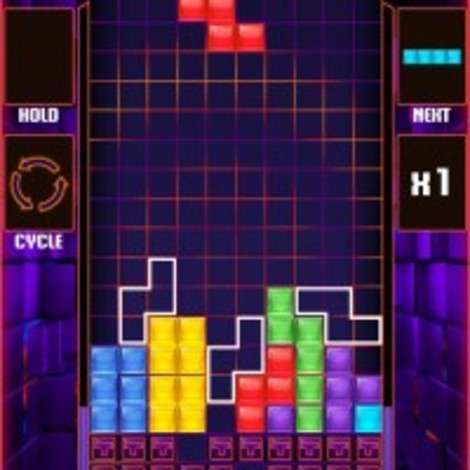Tetris Curbs Cravings -- and Pigs Just Flew

I've seen this headline, or something like it, in several places over the past couple of days: "Tetris Can Help Reduce Food Cravings!" The headlines refer to a new study published in the journal Appetite in which it was shown that playing Tetris helped the brain block images that promote cravings -- images of food, for example, or of other addictive substances, like tobacco or alcohol. The study found that people who spent even short amounts of time (three minutes) playing Tetris rated any cravings they have as weaker than those who attempted to play a game that never actually loaded.
This is all well and good, and I'm sure lots of people are going to be downloading Tetris games to their phones or tablets or various devices, so that next time a craving hits they'll be ready to make it disappear like a solid row of bricks, but can we talk a little bit about what is really going on here? Is it really Tetris that is making the cravings evaporate, or is it simply taking the focus off of the food and putting it into something more productive? I think it is fairly obvious that the group that "waited for the game to load" could have been as successful in overcoming their cravings if they had been given something else to do besides … wait for the game to load.
Related: Mom confession -- why I pulled the plug on being a distracted parent
Presenting the study this way misses the point. It's not the game that weakened the cravings, it was simply the act of being engaged in another activity. Perhaps in some instances when a craving hits and you are both desperate not to give in and not in any position to dive into something worthwhile and productive (and there I go, revealing my opinions about gaming … ) pulling out Tetris may be your best bet.
However, I think there are even better ways to stop yourself from indulging in the unhealthy cravings that are plaguing you. For example, you could walk away from them. As in, actually go for a walk. Leave behind the fridge and kitchen cupboards, and get lost in your neighborhood for 20 minutes instead. Or you could pick up a book, make that phone call to the friend you've been meaning to talk to for several weeks, sit down and play a game with your kid like you've been promising to do all day, or work on that project you can never seem to find the time to do.
Aside from the fact that this "news" presents Tetris as the answer to our craving problems, the real issue I have with it is that it fails to identify what the real problem is when we give into cravings: we're bored. We're not thinking. We're allowing habits to dictate our actions rather than consciously taking responsibility for our actions and trying to improve our habits. Getting lost in a game of Tetris may be a good way to forget about the food that we're craving, but it is really just replacing that craving with what could, quite easily, become another mindless, habit-forming craving. And before we know it, we're talking about having to break out Tetris addiction.
Instead of leaning on distractions to help conquer cravings, maybe we should recognize it as a signal that we're not engaged -- and find something worth getting lost in.
Photo Credit: Tetris Blitz App
By: Lizzie Heiselt
For 20 little ways to de-stress throughout the day, visit Babble!
MORE ON BABBLE
The 5 worst foods for weight loss
100-calorie snacks for your next late-night craving
7 genius ways to kill unhealthy food cravings

